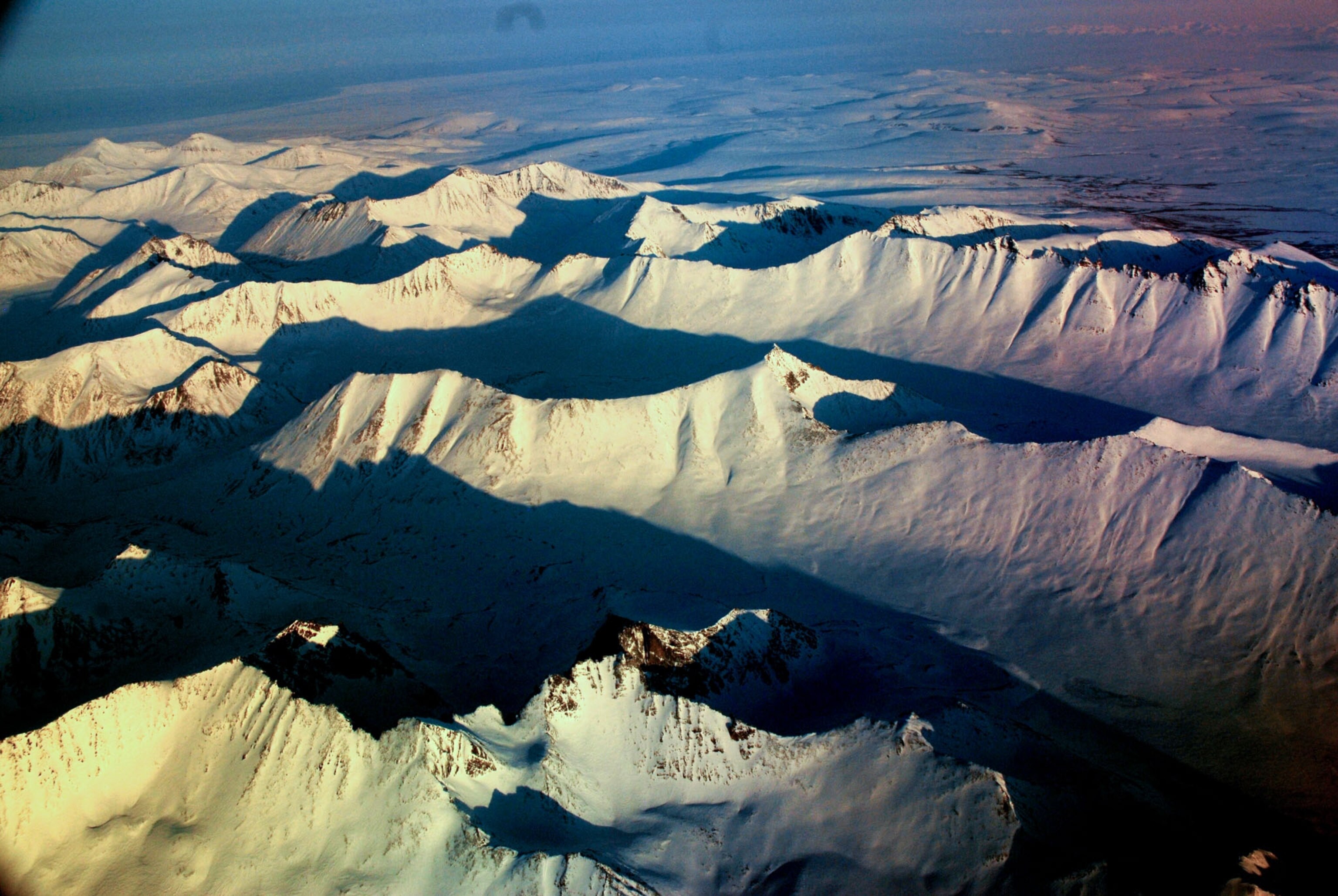Animals Are Shrinking and Freezing to Death in a Changing Arctic
Unusual weather brought by climate change is making it tough for muskoxen to get food—and sometimes even entombs them in ice.
Muskoxen, the plant-chomping, long-haired mammals that huddle on the Arctic tundra, are being born smaller in parts of the far north, as pregnant mothers struggle to find food.
One reason, according to new research published Thursday in Scientific Reports: Muskoxen eat most of the year by pawing through snow with their hooves. But rising temperatures mean precipitation increasingly falls as rain, only to then freeze on the surface, encasing plant life in inaccessible ice.
Meanwhile, in a type of freak weather event likely to become more common, more than 50 muskoxen died swamped in ice, as gusts of howling winds drove ice and freezing waters from a tidal surge so far inland that fish were found a half-mile from shore. Rising seas are making such surges bigger and more common.
After seven years of working through the wind and dark of bleak Arctic winters on two continents, a team of scientists tracking muskoxen unearthed surprising ways that unusual weather brought by climate change is straining life for some of the far north's least-studied wildlife.
"Most people know polar bears are in trouble, but they don't really make the connection that the warming that's happening offshore is also happening onshore," says the study's lead author, Joel Berger, a Colorado State University professor and senior scientist with the Wildlife Conservation Society. "These extreme weather events that have their genesis in warming temperatures are now impacting animals on land."
Those impacts are showing up in unexpected places.
Putting the Next Generation at Risk
Berger and his team spent February and March for several years studying muskoxen on the icy plains of Siberia and northern Alaska because "we know less about these species than many other large mammals." While polar bears and caribou have been tracked for years, most muskoxen work is done from the sky, as scientists use aerial surveys to count animals.
To understand how extreme weather may be hitting these massive creatures, the scientists, like their subjects, huddled in the dark through good weather and bad, taking photographs and notes. They tracked animal sizes and weather events and used computer models.
They knew that in 2003, one massive rain-on-snow event led 20,000 muskoxen to starve. But they found there also were consequences to frequent smaller events. When pregnant animals were exposed to such periods, they struggled to find food, and their offspring were born with smaller heads. That actually is a big thing.
"Whether we think about malnourished children or elk, we know that during gestation, especially during the last trimester, if a mother can't get access to food, the baby pays the price," Berger says. Muskoxen "come out runtier," which, like other mammals, can lead to shorter lifespans and poor health.
The longterm consequences are unlikely to be good. And increasing warmth is also increasing rain through Arctic winters and springs.
"I live in Colorado," Berger says. "Yesterday here it was minus 2 degrees. In one of the towns I worked with in the Arctic it was 27 degrees yesterday. That's a problem."
While Berger hasn't seen similar research on other Arctic mammals, he would expect similar results for some species, but not others. Caribou, unlike muskoxen, migrate, so are likely to be able to travel to find food. Lemmings live in tunnels under the snow, so unless weather events are so piercing they collapse those tunnels, they wouldn't likely see similar problems. Snowshoe hares or moose, on the other hand, could be hit by food scarcity much like muskoxen.
But weather episodes can cause trouble in other ways, too.
Frozen Tsunamis
During one February flight in 2011, one of Berger's co-authors was in a plane, photographing 55 muskoxen standing in a lagoon. A couple of weeks later, 52 of them were dead, most almost completely buried in ice. One animal had chunks of ice in its throat. The only animal not completely encased was standing and appeared to have been trying to walk.
By piecing together weather anomalies, Berger and crew figured out the most likely scenario: the animals had fallen victim to an odd type of localized tsunami. High winds pushed average tides near the site 16 times higher than normal, propelling thick ice and waves inland. Five-meter-long plates of ice up to 50 centimeters thick were found piled near the muskoxen.
"All these animals were entombed in ice," Berger says. "They just couldn't escape."
Berger worked with indigenous elders in Alaska and learned there were even terms for such deadly ice tidal surges—ivu or ivuniq. Other one-time storm events have been known to trap belugas, narwhals, and otters by the dozens in small ocean areas packed with ice.
"But nobody has ever described this many muskoxen dying in one place like this," Berger says. "Maybe events like this occurred in the past and no one was around to see it—we don't know."
But with seas rising high enough that coastal villages already face such severe erosion that they seek government help relocating, "this is probably something we're going to start to see a lot more of," Berger says.




